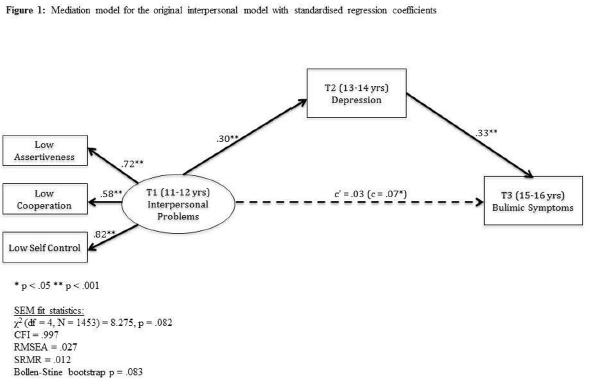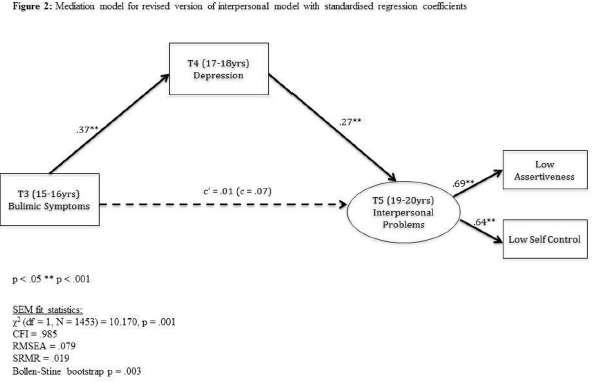No CrossRef data available.
Article contents
A Longitudinal Examination of the Interpersonal Model of Binge Eating in Australian Adolescents
Published online by Cambridge University Press: 15 April 2020
Abstract
The interpersonal model of binge eating proposes that interpersonal problems lead to depression, which in turn results in bulimic behaviour. Few studies, however, have examined the model empirically.
To test the original interpersonal model of binge eating longitudinally and a revised version of the model in which depression mediates the relationship between bulimic behaviour and interpersonal problems.
1453 (702 females) participants from the Australian Temperament Project (ATP) were assessed across five time points (T1-T5). Interpersonal problems were drawn from parent and self-reported questionnaires at T1 and T5. Data on depression was taken from self-reports at T2 and T4 and data on bulimic behaviour was taken from self-report at T3.
An acceptable fit for both models was obtained through Structural equation modelling (SEM). Depression mediated the relationship between interpersonal problems and bulimic behaviour in both models. [See Figure 1 (original model) and Figure 2 (revised model].
The results provide longitudinal support for the interpersonal model of binge eating and initial evidence for a new version of the model, offering important insights into the role of interpersonal problems in the development and maintenance of bulimic pathology.


- Type
- Article: 0738
- Information
- European Psychiatry , Volume 30 , Issue S1: Abstracts of the 23rd European Congress of Psychiatry , March 2015 , pp. 1
- Copyright
- Copyright © European Psychiatric Association 2015





Comments
No Comments have been published for this article.